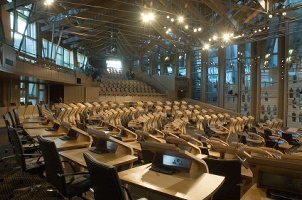 Large international conferences require interpretation in many different languages. It takes a great deal of preparation, equipment and teamwork to make the conferences successful. Can you imagine the complicated logistics involved?
Large international conferences require interpretation in many different languages. It takes a great deal of preparation, equipment and teamwork to make the conferences successful. Can you imagine the complicated logistics involved?
It may involve a dozen sound engineers to make preparations ahead of time. First, several booths must be set up for the interpreters. Each will represent one language and contain interpreters all working at the same time. The location of the booths should allow all interpreters to see the speaker and the activities on stage while the booths should blend in with the conference setting.
Before the conference starts, the interpretation system has to be connected and tested to ensure each booth’s interpretation can be clearly heard from the headsets that will be provided to the audience.
When the audience gets there, each member is provided a headset connected to a radio-like device that receives the channels of interpretation in different languages (English, Chinese, French, Spanish, Japanese, German, etc.). Using all of this high-tech equipment makes you feel like you’re in the U.N.
The interpreters should arrive early and get as much information beforehand as possible. Simultaneous interpretation is a very difficult and energy-consuming task. Therefore, there are usually two to three interpreters in each booth. They are like a relay race team, taking turns to interpret, 20 minutes each turn. While one interpreter is interpreting, the others must also listen to the speaker so that the next interpreter knows when it is his or her turn to interpret. The three interpreters also depend on each other for help. For example, they may need their partners to write down big numbers or look up the terms in the glossary. Teamwork is crucial to the success of the interpretation.
At the end of the communication relay race, every audience member has understood the conference. The team feels mission accomplished. Monterey Language Services is getting ready for one such conference as we speak. We look forward to helping the panel communicate to the audience.




Leave Your Comments Below